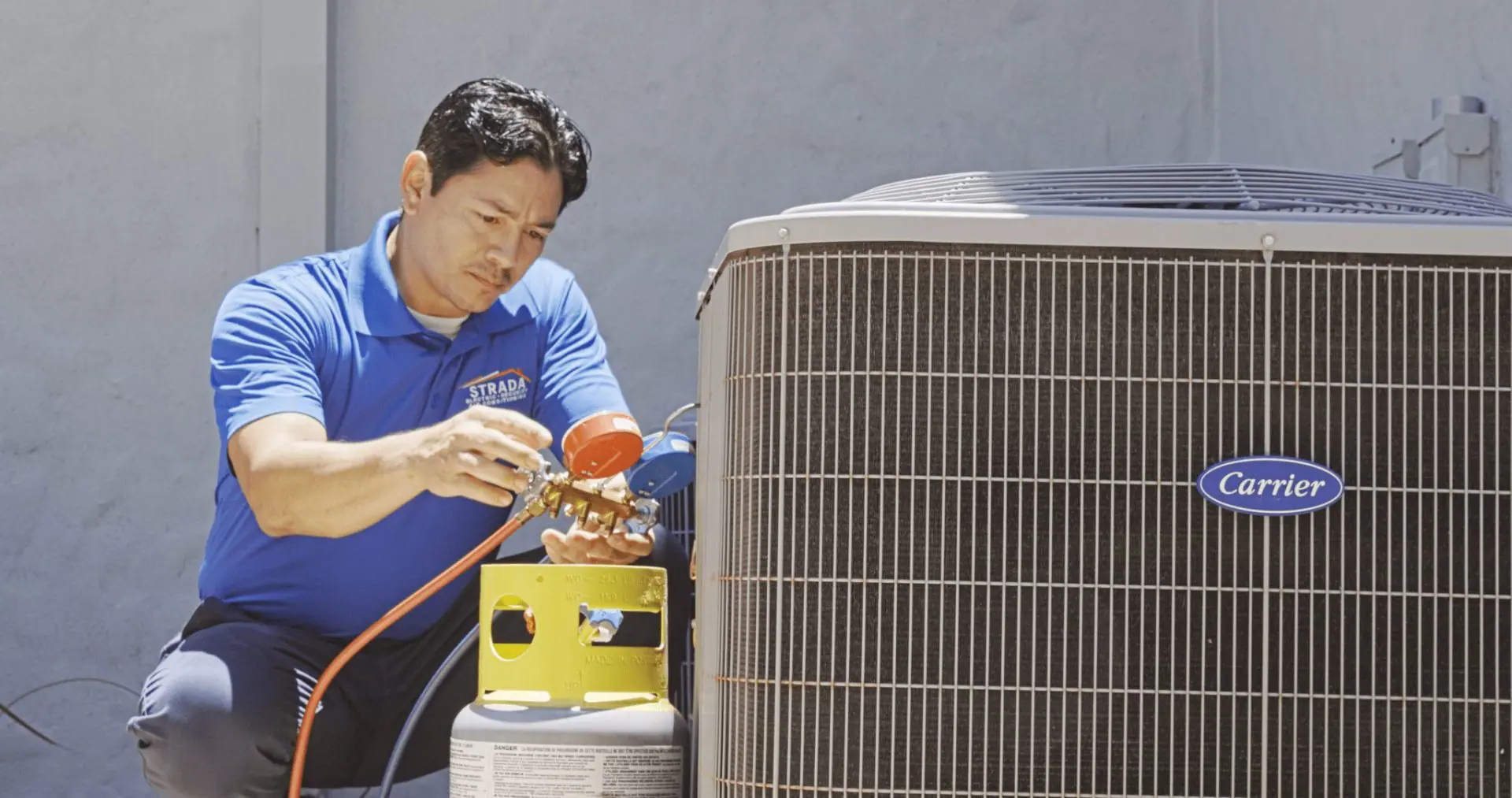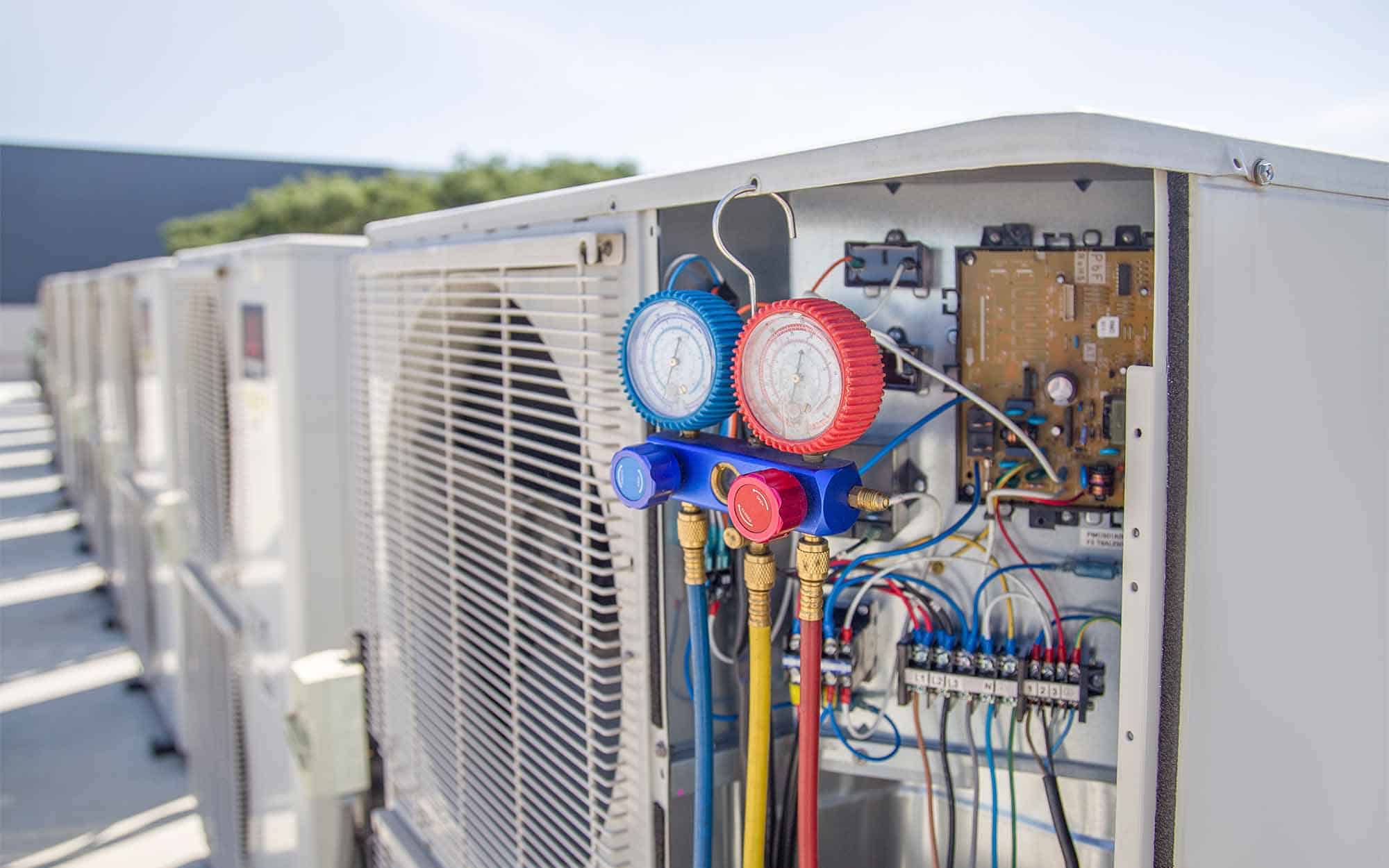Picking In Between a Heat Pump and Heater: Key Factors To Consider for Your A/c Demands
When reviewing heating options for HVAC requires, the decision between a heatpump and a furnace can be complex. Each system offers distinctive advantages tailored to details climates and power performance objectives. Understanding these distinctions is necessary for making an educated selection. Secret aspects such as setup prices and environmental influence better make complex the choice process. Which alternative really straightens with one's comfort and sustainability choices? The following areas will explore these considerations in detail.
Comprehending Warm Pumps: Exactly How They Function and Their Benefits
While lots of homeowners take into consideration various home heating options, comprehending just how warmth pumps function and their advantages can greatly influence their decision. Heatpump run by moving heat instead of creating it. In the winter months, they extract warm from the outdoors air or ground and transfer it indoors, while in the summertime, they reverse this procedure, cooling down the home by removing warm outside. This dual performance makes them flexible for year-round environment control.One of the key advantages of heatpump is their energy efficiency. They make use of considerably less power contrasted to typical heater, potentially causing reduced utility bills (furnace replacement). Additionally, warm pumps have a smaller carbon footprint, making them an environmentally pleasant option. They likewise need less maintenance than conventional systems, contributing to long-lasting cost savings. Overall, understanding the mechanics and advantages of warmth pumps can aid homeowners make educated decisions concerning their heating and cooling needs
Exploring Heaters: Kinds, Procedure, and Advantages
Heating systems come in numerous kinds, including gas, electric, and oil designs, each with unique operational devices. Understanding these differences is important, as they impact effectiveness and heating performance. In addition, furnaces offer various advantages, such as constant warm outcome and reliability in cooler environments.
Sorts of Heaters
Furnace can vary considerably in design and procedure, with heating systems being a preferred option among home owners. There are several kinds of heating systems, each utilizing different gas sources and modern technologies. Gas furnaces are usual, leveraging gas to generate heat efficiently. Electric heaters, on the other hand, utilize electrical resistance to generate heat, usually preferred for their simple installment. Oil heaters, while less typical, are effective in areas with limited gas accessibility (heat pump replacement ooltewah tn). Furthermore, condensing furnaces maximize energy effectiveness by capturing and reusing exhaust gases. Each type operates through a system of heat exchangers and ductwork to distribute cozy air throughout a home. Understanding the differences between these heating system kinds is necessary for informed a/c choices
Benefits of Heating systems
For house owners looking for dependable warmth throughout chilly months, the benefits of heaters are significant. Furnaces offer regular home heating, ensuring also temperature levels throughout the home. They are especially reliable in extreme cold, often outshining warmth pumps in cold problems. Numerous kinds, consisting of gas, electrical, and oil furnaces, provide flexibility to satisfy varied demands and preferences.Furnaces also tend to have lower first installment prices contrasted to warmth pumps, making them a much more easily accessible alternative for numerous. Their durable layout adds to a longer life-span, with many units lasting over 15 years with appropriate maintenance. In addition, modern-day heating systems are frequently geared up with advanced innovation for boosted efficiency, which can cause decreased energy expenses. Generally, heating systems remain a trustworthy option for effective home heating.

Energy Performance: Comparing Warmth Pumps and Furnaces
When comparing power performance in between heatpump and heaters, the Seasonal Power Effectiveness Ratio (SEER) plays a vital function in identifying performance. Furthermore, an operational cost evaluation discloses the long-lasting economic effects of each system. Recognizing these aspects can lead property owners in making notified choices about their heating services.
Seasonal Energy Performance Proportion
Power performance plays a crucial role in the decision-making process in between heatpump and heaters, especially when considering the Seasonal Energy Performance Ratio (SEER) This statistics measures the cooling effectiveness of heatpump over a whole cooling season, giving a standard way to examine performance. Higher SEER scores suggest higher energy efficiency, converting to reduced energy consumption and minimized energy bills. On the other hand, heaters are commonly evaluated making use of the Yearly Gas Utilization Effectiveness (AFUE) ranking, which reflects home heating performance. When contrasting these 2 systems, home owners must focus on SEER scores for warm pumps, as they directly impact overall power cost savings and ecological sustainability. A thorough understanding of SEER can especially affect the long-term fulfillment and cost-effectiveness of the chosen HVAC option.
Operational Cost Evaluation
Understanding the operational prices connected with heat pumps and heating systems is important for homeowners reviewing their choices. Heatpump usually offer higher energy performance, converting electrical energy right into warmth with marginal waste. This leads to lower month-to-month energy bills, especially in moderate environments. Alternatively, conventional heating systems, particularly gas models, may have lower upfront costs but can incur greater functional expenses with time due to fuel prices and performance ratings.Moreover, heatpump can work as both home heating and cooling down systems, potentially minimizing the need for different HVAC systems. While preliminary financial investments for warmth pumps may be higher, their long-lasting savings in energy efficiency can make them a more cost-efficient option for many households. Cautious evaluation of regional power prices is vital to establish the most effective choice.
Setup Expenses: What to Anticipate for each and every Furnace
Installation costs for heater can vary significantly in between warm pumps and heaters, affecting property owners' choices. Heatpump normally have greater ahead of time setup costs, generally varying from $3,500 to $8,000, depending upon the system size and intricacy of setup. This includes the outdoor unit, indoor handling system, and required ductwork modifications. Conversely, heating systems tend to have lower first expenses, averaging between $2,500 and $6,000, which can be appealing for budget-conscious home owners. Installment expenses can boost if comprehensive ductwork is required.Moreover, the option of fuel kind for heaters-- all-natural gas, lp, or electric-- can likewise influence installation prices. While heatpump supply power effectiveness, their preliminary financial investment may discourage some buyers. Eventually, reviewing installment costs together with long-lasting savings and efficiency will certainly help property owners in making informed decisions concerning their furnace.
Environment Considerations: Which System Does Much Better in Your Area
Just how do environment problems affect the performance of heating unit? The efficiency of heat pumps and heating systems can vary significantly relying on the neighborhood climate. In modest official website climates, heatpump stand out by successfully moving heat from the outside air, making them an energy-saving option. Nevertheless, their effectiveness decreases in extremely chilly temperatures, where they may battle to extract enough warm. Alternatively, heating systems, especially gas designs, provide reliable and constant heat no matter exterior conditions, making them more effective in colder regions.In areas that experience milder winters months, warmth pumps can operate properly year-round, offering both heating & cooling. In comparison, areas with extreme winters typically gain from the effectiveness of heating systems. Inevitably, comprehending the neighborhood environment is important when choosing in between a warmth pump and a furnace, as it directly impacts their operational effectiveness and general efficiency.
Upkeep Needs: Long-Term Take Care Of Warmth Pumps vs. Furnaces
While both heatpump and furnaces need regular upkeep to guarantee peak performance, their certain requirements and treatment regimens differ substantially. Heating systems usually need less regular attention, with yearly examinations being enough to inspect for gas leaks, clean filters, and examine overall performance. Their less complex layout often permits straightforward repairs.In comparison, warm pumps necessitate semiannual maintenance due to their dual function in heating & cooling. This consists of cleansing coils, inspecting refrigerant degrees, and making sure that both the interior and exterior systems function at their ideal. Additionally, heat pump upkeep usually involves more complex parts, making professional maintenance essential.Neglecting maintenance can cause diminished performance and increased energy expenses for both systems. Inevitably, homeowners must take into consideration these long-term treatment requirements when choosing between a heatpump and a furnace, as positive upkeep can expand the lifespan and performance of either system considerably.
Environmental Influence: Picking a Sustainable Home Heating Alternative
The ecological influence of heating unit is an important examination for homeowners seeking sustainable choices. Heatpump are typically much more energy-efficient than standard heaters, as they transfer heat as opposed to produce it, significantly decreasing carbon discharges. By making use of eco-friendly power sources, such as geothermal or air-source heat pumps, property owners can additionally decrease their eco-friendly see this page footprint.On the various other hand, gas heaters emit greenhouse gases and add to air pollution, though they frequently provide greater warmth result. Advancements in technology have actually led to the advancement of high-efficiency heating systems that reduce emissions.Ultimately, picking a heating system involves evaluating performance against ecological effect. Homeowners are motivated to reflect on neighborhood energy resources and motivations for renewable systems, making sure an option that aligns with both individual comfort and environmental duty. The decision affects not only immediate comfort yet also long-lasting sustainability and ecological health.
Often Asked Questions
The Length Of Time Do Heat Pumps and Furnaces Typically Last?
The life expectancy of heatpump normally ranges from 15 to twenty years, while heating systems can last in between 15 to thirty years. Normal maintenance considerably affects their durability and efficiency in offering home heating services.
Can I Make Use Of a Heatpump in Incredibly Cold Climates?
Heatpump can run in incredibly cool climates, but their effectiveness decreases as temperature levels decrease. In such conditions, extra heating sources might be needed to keep comfy interior temperature levels and guarantee peak efficiency.

What Is the Noise Level of Warmth Pumps Versus Furnaces?
The noise levels of warmth pumps and heating systems differ significantly. Generally, heat pumps run even more silently than typical heating systems, making them preferable for those sensitive to seem, while heaters might produce louder operational noises during heating cycles.
Are Heat Pumps Suitable for Both Cooling And Heating?
Heat pumps are certainly appropriate for both cooling and heating (ductless mini splits). They function by moving warmth, giving reliable temperature level control year-round, making them a versatile choice for property owners seeking an all-in-one HVAC solution
What Dimension Heater Do I Need for My Home?
Figuring out the suitable size heater for a home needs assessing elements such as square video, insulation quality, local environment, and the home's format. Consulting a specialist can ensure an accurate analysis and excellent comfort. Heat pumps commonly use higher power effectiveness, converting electrical energy right into heat with marginal waste. In moderate climates, warmth pumps stand out by successfully moving warm from navigate here the outdoors air, making them an energy-saving choice. Conversely, heaters, especially gas versions, offer constant and reliable warmth regardless of outside conditions, making them more effective in colder regions.In areas that experience milder winters months, warm pumps can operate successfully year-round, supplying both home heating and cooling. Warmth pumps are normally more energy-efficient than standard furnaces, as they move heat rather than produce it, considerably reducing carbon emissions. By using renewable energy sources, such as air-source or geothermal warm pumps, homeowners can even more minimize their ecological footprint.On the other hand, all-natural gas heaters emit greenhouse gases and add to air contamination, though they often provide higher heat outcome.
Comments on “How to Extend HVAC Lifespan Through Consistent heat pump service”